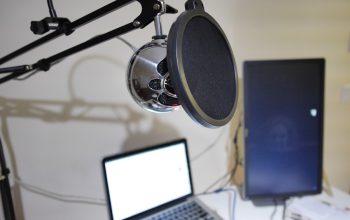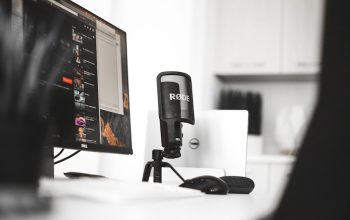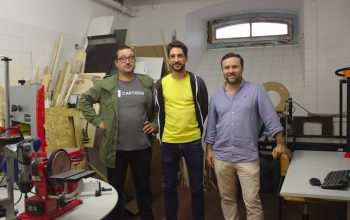The origins of podcasting can be traced back to the early 2000s, a time when the internet was rapidly evolving and digital media was beginning to take shape.
The groundwork for podcasting was laid by the convergence of several technological advancements, including the rise of portable media players, the proliferation of broadband internet, and the development of RSS (Really Simple Syndication) feeds.
RSS allowed users to subscribe to content feeds, enabling automatic downloads of audio files to their devices, which was a revolutionary concept at the time. One of the pivotal figures in the early days of podcasting was Dave Winer, a software developer who played a crucial role in creating RSS feeds that supported audio content. In 2000, Winer collaborated with Adam Curry, a former MTV VJ, to develop a program called iPodder, which allowed users to download and listen to audio content on their iPods.
This collaboration marked a significant turning point in the evolution of podcasting, as it provided a user-friendly way for individuals to access audio content on demand. The first podcasts were often amateur productions, with creators recording their thoughts and discussions on various topics, paving the way for a new form of media that would eventually attract a diverse range of voices and perspectives.
Key Takeaways
- Podcasting began as an amateur medium in the early 2000s, with pioneers like Dave Winer and Adam Curry creating the first podcasting software.
- The rise of smartphones and streaming services in the digital age led to a surge in podcast popularity, making it a mainstream form of entertainment and information.
- Key players and influencers in the history of podcasting include Marc Maron, who popularized the interview format, and Sarah Koenig, whose “Serial” podcast brought true crime storytelling to the forefront.
- The evolution of podcasting technology has seen advancements in audio quality, distribution platforms, and monetization strategies, making it easier for creators to produce and distribute content.
- Podcasting has had a significant impact on media and communication, providing a platform for diverse voices and niche interests, and challenging traditional media formats.
The Rise of Podcasting in the Digital Age
As broadband internet became more widely available and portable devices gained popularity, podcasting began to flourish. By the mid-2000s, an increasing number of individuals and organizations recognized the potential of this medium to reach audiences in innovative ways. The launch of Apple’s iTunes 4.9 in 2005 was a watershed moment for podcasting; it included a built-in podcast directory that made it easier for users to discover and subscribe to podcasts.
This integration not only legitimized podcasting as a mainstream medium but also provided creators with a platform to reach millions of listeners. The growth of podcasting during this period was characterized by an explosion of content across various genres. From true crime and comedy to educational programming and storytelling, podcasters began to explore an array of topics that appealed to niche audiences.
This diversification contributed to the medium’s popularity, as listeners found shows that resonated with their interests and experiences. The rise of social media also played a significant role in promoting podcasts, as creators leveraged platforms like Twitter and Facebook to engage with their audiences and share their content. This interconnectedness fostered a sense of community among listeners and creators alike, further propelling the growth of podcasting.
Key Players and Influencers in the History of Podcasting

Throughout its history, podcasting has been shaped by numerous key players and influencers who have contributed to its development and popularity. One notable figure is Marc Maron, whose podcast “WTF with Marc Maron” debuted in 2009. Maron’s candid interviews with comedians, actors, and musicians not only showcased his unique interviewing style but also helped elevate the medium’s status as a platform for in-depth conversations.
His ability to connect with guests on a personal level resonated with audiences, leading to a loyal following and inspiring countless other podcasters to adopt similar approaches. Another influential player is Sarah Koenig, the creator and host of “Serial,” which premiered in 2014. This groundbreaking podcast redefined narrative storytelling in audio form and captivated millions of listeners with its serialized format.
“Serial” focused on a single true crime case each season, drawing listeners into its intricate web of details and emotional depth. The success of “Serial” not only demonstrated the potential for podcasts to tell compelling stories but also sparked a surge in interest in true crime podcasts, leading to an entire genre dedicated to exploring real-life mysteries and criminal cases.
The Evolution of Podcasting Technology
| Year | Technology | Metrics |
|---|---|---|
| 2004 | Podcasting software | First podcasting software released |
| 2005 | RSS feeds | Integration of RSS feeds for automatic episode updates |
| 2006 | Enhanced audio quality | Improvement in audio recording and editing technology |
| 2010 | Mobile apps | Introduction of mobile apps for podcast listening |
| 2014 | Monetization | Development of advertising and subscription models |
| 2020 | AI technology | Integration of AI for content recommendation and transcription |
The technological landscape surrounding podcasting has evolved significantly since its inception. Initially, podcasters relied on basic recording equipment and editing software to produce their shows. However, as the medium gained traction, advancements in technology made it easier for creators to produce high-quality audio content.
The introduction of user-friendly recording software like Audacity and GarageBand democratized audio production, allowing individuals with minimal technical expertise to create professional-sounding podcasts. Moreover, hosting platforms such as Libsyn and Podbean emerged, providing podcasters with reliable services for distributing their content. These platforms offered analytics tools that allowed creators to track listener engagement and demographics, enabling them to refine their content strategies based on audience preferences.
The rise of mobile applications dedicated to podcast consumption further transformed the landscape; apps like Spotify and Apple Podcasts made it convenient for users to discover, subscribe to, and listen to their favorite shows on-the-go. This evolution in technology not only enhanced the quality of podcasts but also expanded their accessibility, contributing to the medium’s widespread popularity.
Podcasting’s Impact on Media and Communication
Podcasting has had a profound impact on media and communication, fundamentally altering how information is disseminated and consumed. Unlike traditional radio or television broadcasts that adhere to rigid schedules, podcasts offer listeners the flexibility to consume content at their convenience. This shift has empowered audiences to curate their own media experiences, choosing what they want to listen to based on personal interests rather than being subjected to predetermined programming.
Independent creators can share their stories and perspectives without the constraints often imposed by traditional media outlets. This has led to an explosion of niche content that caters to specific communities and interests, fostering inclusivity within the media landscape.
As a result, podcasting has become a powerful tool for social change, allowing underrepresented groups to amplify their voices and share their narratives with broader audiences.
Podcasting’s Role in Shaping Modern Culture

In recent years, podcasting has emerged as a significant cultural force that shapes public discourse and influences societal trends. The medium has become a space for exploring complex issues such as politics, mental health, social justice, and personal identity. Podcasts like “The Daily” from The New York Times have transformed how news is consumed by providing in-depth analysis and context around current events, allowing listeners to engage with important topics in a more nuanced way.
Moreover, podcasts have played a crucial role in shaping popular culture by giving rise to new forms of entertainment and storytelling. The success of narrative-driven podcasts has inspired adaptations into television series and films, blurring the lines between different media formats. For instance, “Homecoming,” originally a podcast created by Eli Horowitz and Micah Bloomberg, was adapted into a successful television series starring Julia Roberts.
This cross-pollination between mediums highlights how podcasting has not only influenced cultural narratives but has also become an integral part of the entertainment ecosystem.
Challenges and Controversies in the Podcasting Industry
Despite its rapid growth and popularity, the podcasting industry faces several challenges and controversies that warrant attention. One significant issue is the question of monetization and sustainability for independent creators. While some podcasters have found success through sponsorships or crowdfunding platforms like Patreon, many struggle to generate revenue from their content.
This disparity raises concerns about equity within the industry, as larger networks or established creators often have more resources at their disposal compared to independent podcasters. Additionally, issues related to content moderation and misinformation have emerged as critical challenges within the podcasting landscape. As podcasts can be produced by anyone with access to recording equipment, there is a risk of spreading false information or harmful narratives without proper fact-checking or editorial oversight.
This has led some platforms to grapple with how best to address misinformation while preserving freedom of expression. Striking this balance remains an ongoing debate within the industry as it continues to evolve.
The Future of Podcasting: Trends and Innovations
Looking ahead, the future of podcasting appears promising as new trends and innovations continue to emerge within the medium. One notable trend is the increasing integration of artificial intelligence (AI) into podcast production and consumption. AI-driven tools are being developed to assist creators in editing audio files more efficiently or generating transcripts automatically, streamlining the production process for podcasters.
Additionally, AI algorithms are being utilized by platforms to recommend personalized content based on listener preferences, enhancing user experience. Another exciting development is the rise of interactive podcasts that engage listeners in real-time through features like polls or audience participation segments. This interactivity fosters a deeper connection between creators and their audiences while encouraging active engagement with content.
Furthermore, as virtual reality (VR) technology advances, there is potential for immersive storytelling experiences that could revolutionize how podcasts are produced and consumed. As podcasting continues to evolve alongside technological advancements and cultural shifts, it remains poised to play an integral role in shaping media consumption patterns for years to come. With its unique ability to connect people through storytelling and conversation, podcasting will likely continue expanding its influence across various domains while adapting to meet the needs of an ever-changing audience landscape.
If you are interested in learning more about the world of podcasting, you may want to check out the article “Hello World” on the Education Podcast Network blog. This article provides insights into how podcasting has evolved and its impact on education. To read more about this topic, visit this link.
FAQs
What is podcasting?
Podcasting is a digital medium that involves creating and distributing audio or video files over the internet for users to download and listen to on their computers or mobile devices.
When did podcasting start?
Podcasting first emerged in the early 2000s, with the term “podcasting” being coined in 2004 by journalist Ben Hammersley.
Who is considered the pioneer of podcasting?
Adam Curry, a former MTV video jockey, and software developer Dave Winer are often credited as the pioneers of podcasting. They developed the technology that made podcasting possible and are considered instrumental in popularizing the medium.
How has podcasting evolved over the years?
Podcasting has evolved from a niche hobby to a mainstream form of media consumption. The medium has seen significant growth in both the number of podcasts available and the number of listeners worldwide.
What are some key milestones in the history of podcasting?
Some key milestones in the history of podcasting include the development of the RSS feed enclosure by Dave Winer, the launch of the first podcast directory by Adam Curry, and the inclusion of podcasts in the iTunes Store by Apple in 2005.
How has podcasting impacted the media industry?
Podcasting has disrupted traditional media consumption patterns and provided a platform for independent creators to reach a global audience. It has also influenced the way advertisers and brands engage with consumers through audio content.
What are some popular podcasts today?
Some popular podcasts today include “The Joe Rogan Experience,” “Serial,” “The Daily,” “Stuff You Should Know,” and “TED Radio Hour,” among many others. These podcasts cover a wide range of topics and have amassed large and dedicated audiences.



